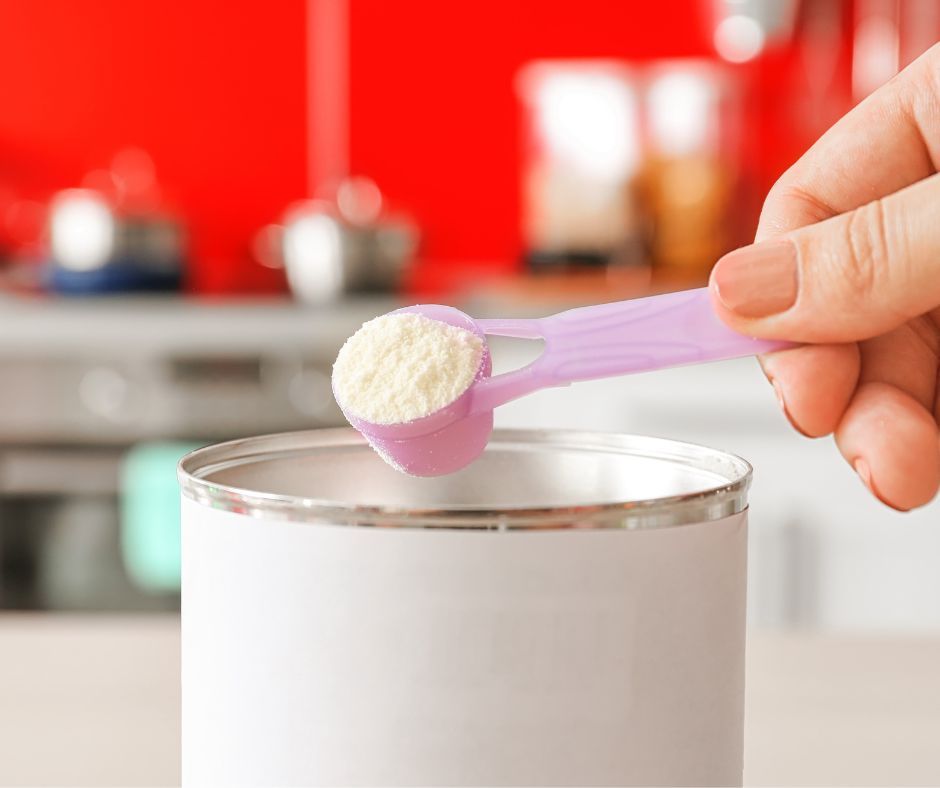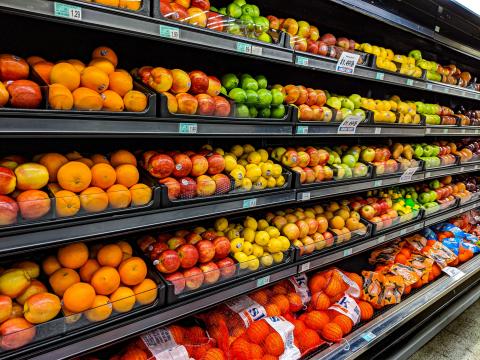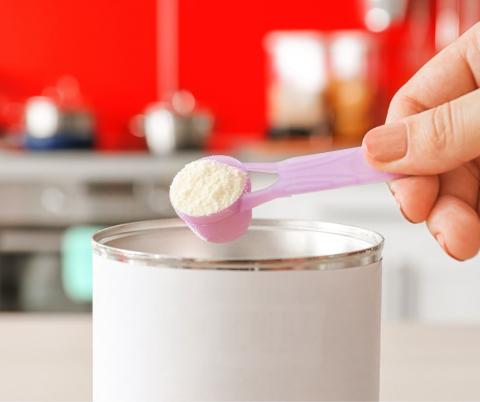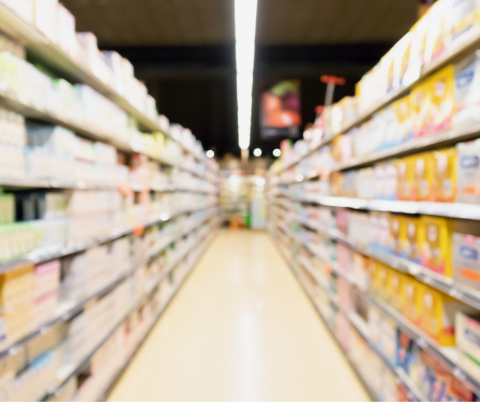Kids Food Guarantee Update: Infant milk formula - July 2023
While breastfeeding is recommended for all mothers and infants, some parents cannot, or choose not to breastfeed.
A large number of complex barriers and a lack of support mean that exclusive breastfeeding is not always possible for many parents and caregivers in the UK. Up until the age of six months, breast milk or first infant formula are a baby’s sole source of nutrition and hydration.
From six months onwards, for those infants who are formula fed, formula is required up until the age of one when cow’s milk can be introduced.
Whilst research shows that the majority of British mothers would like to breastfeed, most do not do so for as long as they want or for as long as is recommended, with over half of babies in England not exclusively breastfed by the age of six-eight weeks in the first quarter of 2022.
Safe, nutritionally adequate and affordable infant formula is needed where parents cannot, or choose not to, breastfeed or provide breastmilk for their infants.
The cost of living crisis will be making it harder for some families to afford formula.

First Steps Nutrition reports that between March 2021 (before food prices started to rise) and April 2023, the seven standard powdered first infant formulas sold by the market leaders increased in cost by an average of 24%, and the only ‘own-brand’ infant formula on the market (ALDI’s Mamia brand) increased by 45%.
This poses a huge risk to children’s health given that where breastfeeding is not chosen or possible, infant formula before the age of six months is the only option parents have for feeding their infants, and a key source of both calories and other key micronutrients such as iron and calcium between six months and the age of one.
Attempts by parents to cut costs, for example by reducing feeding frequency, ignoring best before dates, or over-diluting powdered infant formula, come with worrying health risks as babies and young children are more susceptible to food-borne illness than adults and have high energy needs for growth and development.
The Food Foundation's Kid’s Food Guarantee is therefore calling for retailers to offer an own brand formula and encouraging both manufacturers and retailers to insulate first infant milk formula from the worst of food price inflation.
Own-brand or own-label products are carried exclusively by the supermarket that owns them and are generally cheaper than branded goods despite being of comparable or identical quality.
What we did
We selected six standard first infant formula milk products sold in the UK at the major supermarkets. Manufacturers for each brand are listed in brackets. These are:
- Aptamil 1 First Infant Milk From Birth (Danone)
- Cow & Gate 1 First Milk Powder (Danone)
- HiPP Organic Infant Milk (HiPP)
- Kendamil First Infant Milk Stage 1 (Kendal Nutricare)
- Mamia First Infant Milk (Aldi)
- SMA Little Steps First Milk 1 From Birth (Nestle)
We then found the price of these brands as listed online at each of the nine major UK retailers: ALDI, Asda, Co-op, Iceland, Morrisons, Ocado, Sainsbury’s, Tesco, and Waitrose.
The data was collected on 5th June 2023, and the search will run on a regular basis for the next three months as we continually assess the price and availability of first infant milk formula.
We separately looked at both price/100g and the unit price of a tin of formula. The price of the larger tins (typically containing 800-900g of formula) provides a more realistic reflection of shopping behaviour, as consumers do not buy formula in 100g portions.
We excluded pharmacies, such as Boots and Superdrug, from our search as the Kids Food Guarantee is focused on supermarkets and manufacturers.
The majority of retailers stock three or more of the above-mentioned brands.
Aldi is the exception with its own-brand Mamia First Infant Milk formula and does not stock any other branded products.
As powdered infant formula is the cheapest format available and is the most widely used (as opposed to liquid ready-to-feed infant formula and formula tablets), we focus on this in this analysis in line with First Steps Nutrition’s analysis of formula.
This is first stage infant formula made with cows’ milk, and we excluded hungry baby, anti-reflux, lactose free or comfort milks. More expensive goat milks are also excluded.
Kendamil first infant milk is sold in both 800g and 900g tins across different retailers.
We therefore included Kendamil in our pricing analysis per 100g of formula, but excluded the product from our price analysis per unit/tin, as we were not able to compare the price of a tin consistently across retailers.
What we found
There are no first infant formulas available that are affordable with the Healthy Start allowance, which is £8.50 per week, or £34 per month for those with children aged under one.
All infant formula must meet strict regulations on nutrition composition, meaning that all first infant milk formula products are comparable in terms of nutrition.
All first infant formula products on the UK market must comply with regulations on nutrition composition which means they are all judged to be safe and suitable to support adequate growth and development.
Despite this we found a large range of prices, both across different brands of formula, as well as the same brand when stocked across different retailers.
The table below shows the price of the six main first infant formula brands across the nine retailers. For each of the six formula brands, orange denotes the supermarket offering the branded product for the highest price and green the lowest.
Across all nine retailers the price of a tin of powdered formula ranges from £9.39 to £15.95, a difference of £6.56. This means the highest priced formula product is 70% more expensive than the lowest priced product.
Aldi’s Mamia formula, the only retailer own-brand formula on the market, is the cheapest product available at £1.04 per 100g.
However, availability may be an issue for this product given that access depends on living near to an Aldi store.
The product was at one point temporarily out of stock online when we were undertaking our analysis, perhaps indicating high demand.
The most expensive brand is Aptamil by Danone, with a price range of £1.68 to £1.99 per 100g across the nine retailers we looked at.
We also found a range of different prices for the same brand of formula across the retailers.
For example, Aptamil costs £1.68 per 100g at Iceland but £1.99 per 100g at the Co-operative Group. Kendamil first infant milk costs £1.11 per 100g at ASDA but £1.50 per 100g at Sainsbury’s and Ocado.
Implications and suggestions
The price of formula means that for many families formula may be increasingly unaffordable.
No first infant formulas are affordable with the Healthy Start allowance, which provides funds to spend on fruit, veg, milk and formula for low income families with children aged under four.
The Food Foundation data shows that 27% of UK households home to children under the age of four experienced food insecurity in January 2023, which is higher than for those households with only school-age children or no children at all.
This poses a large risk to children’s health and the Government ought to act urgently to increase the value of the Healthy Start allowance in line with inflation.
In Scotland, the value of Best Start funds increased in line with inflation by 10.1% in April 2023 in recognition of the difficulties many households are facing due to the cost of living crisis. Payments increased to £9.90 (£39.60 a month) for children aged under one.
The wide disparity in pricing of products that are nutritionally comparable is also a concern, as a perception that the more expensive brands are of better nutritional quality may be leading families to buy the more expensive products or feel anxiety if they can’t.
Health Care Professionals and government public health communication ought to signpost clearly to families that this is not the case.
Public health messaging should make clear that all infant formulas are nutritionally adequate and there is no need for families to buy the more expensive infant formulas.
The wide range of prices is due more to branding and marketing than it is infant nutrition.
More retailers therefore ought to look to offer an own-brand formula as such products are typically priced below branded products – for example due to the fact they often have simpler packaging.
To see more data on formula prices visit our Kids Food Guarantee dashboard.
____________________________________________
i) Exclusive breastfeeding is recommended for the first six months of an infant’s life. Thereafter, breastfeeding is recommended to be continued for two years and beyond alongside solid foods.





